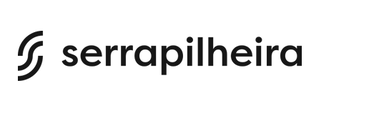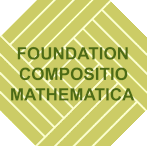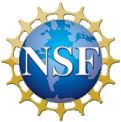|
3 videos available for this event!
|
Lie Theory and Poisson Geometry
Théorie de Lie et géométrie de Poisson
10 – 14 January, 2022
|
Scientific Committee
Comité scientifique Rui Fernandes (University of Illinois at Urbana-Champaign) |
Organizing Committee
Comité d’organisation Ana Balibanu (Harvard University) |
|
Poisson geometry and Lie theory both trace some of their early roots to the seminal work « Theorie der Transformationsgruppen » by Sophus Lie. In their infancy, these two fields were closely intertwined and often results in one area inspired, formalized, and motivated progress in the other. Since then, both have developed into major branches of research, with deep connections to other areas of mathematics and to theoretical physics. The two still overlap in many rapidly-evolving research directions: representation theory, complex geometry, the study of quantization, cluster algebras, D-modules, Poisson-Lie groups and quantum groups, to name a few. This workshop will bring together a diverse group of researchers to share new perspectives on these connections.
The workshop will feature three minicourses on some of the most active areas at the intersection of Lie theory and Poisson geometry. In addition, a substantial portion of each day will consist of contributed talks given by young participants and of discussion sessions themed around key open questions. The goal of the workshop is to provide the participants with a framework in which they can initiate collaborations and form new connections with researchers in adjacent fields. |
La géométrie de Poisson et la théorie de Lie trouvent certaines de leurs origines dans l’ouvrage pionnier « Theorie der Transformationsgruppen » de Sophus Lie. À leurs débuts, ces deux domaines étaient étroitement liées et les découvertes dans chacuns inspira, formalisa et motiva la recherche dans l’autre. Depuis, les deux se sont développés en grands thèmes de recherche, qui sont profondément liés avec d’autres domaines des mathématiques et de la physique théorique. Ils se recouvrent dans de nombreux sous-domaines très actifs : la théorie des représentations, la géométrie complexe, l’étude des quantifications, des algèbres amassées, des D-modules, des groupes de Poisson-Lie et des groupes quantiques, pour n’en nommer que quelques-uns. Ce workshop a pour but de rassembler un groupe diversifié de chercheurs pour leur permettre acquérir de nouvelles perspectives sur ces connexions.
Le programme comprend trois mini-cours axés autour des certaines des thèmes les plus actives à l’intersection de la théorie de Lie et de la géométrie de Poisson. De plus, une partie importante du programme sera réservée pour des brèves présentations de participants juniors et pour des sessions dédié à discuter certains des principales questions ouvertes. Notre objectif est de fournir aux participants un cadre dans lequel ils peuvent initier des collaborations et établir de nouvelles connexions avec des chercheurs dans des domaines adjacents. |
Marius Crainic (Utrecht University) Poisson manifolds of compact type
Pavel Etingof (Massachussetts Institute of Technlogy). Introduction to Poisson-Lie groups and quantum groups
Jiang-Hua Lu (University of Hong Kong) Poisson structures from Lie theory
Talks
Camilo Angulo (Fluminense Federal University) Gray Stability for contact groupoids
Ioana Ciuclea (West University of Timisoara) A class of coadjoint orbits of the area preserving diffeomorphism group of R2
Mateus De Melo (University of São Paulo) On invariant linearization of Lie groupoids
Saskia Demulder (Max-Planck-Institute for Physics, Munich) Doubled aspects of Poisson-Lie models and integrable defects
Marvin Dippell (University of Würzburg) Towards a Local HKR Theorem for Coisotropic Reduction
David Baldomero Iglesias Ponte (University of La Laguna) Integrability of lie algebroids associated to equivariant lie algebra triples
Charlotte Kirchhoff-Lukat (KU Leuven & Massachussets Institute of Technology)
Yu Li (Max Planck Institute for Mathematics, Bonn) Wonderful Compactification of a Cartan Subalgebra of a Semisimple Lie Algebra
Mykola Matviichuk (McGill University) Holonomic Poisson Manifolds
Maxence Mayrand (University of Toronto) Dirac reduction along a submanifold
Eckhard Meinrenken (University of Toronto) On the Virasoro coadjoint action
Maarten Mol (Utrecht University) On the classification of toric actions by regular and proper symplectic groupoids
Clarice Netto (IMPA) Extending Poisson-Nijenhuis to Dirac-Nijenhuis structures
Joao Nuno Mestre (University of Coimbra) Deformations of symplectic groupoids
Jonas Schnitzer (University of Freiburg) The homotopy class of twisted L∞-morphisms and the Kontsevich-Dolgushev Formality
Ekaterina Shemyakova (University of Toledo) On super Plücker embedding and cluster algebras
Wilmer Smilde (University of Illinois at Urbana-Champaign) Lie groups of Poisson diffeomorphisms
Alfonso Giuseppe Tortorella (KU Leuven) Deformations of Symplectic Foliations
Jethro William Van Ekeren (Fluminense Federal University) Chiral homology and Poisson homology
Cornelia Vizman (West University of Timisoara) Coadjoint orbits of the volume preserving diffeomorphism group via dual pairs
Florian Zeiser (Max Planck Insitut for Mathematics, Bonn) The Poisson cohomology of sl2(C)
Luka Zwaan (University of Illinois at Urbana-Champaign) Poisson manifolds of strong compact type over 2-tori
Working groups
Rui Fernandes (University of Illinois at Urbana-Champaign) Poisson manifolds of compact type
Michael Gekhtman (University of Notre Dame) Cluster structures in Poisson geometry









